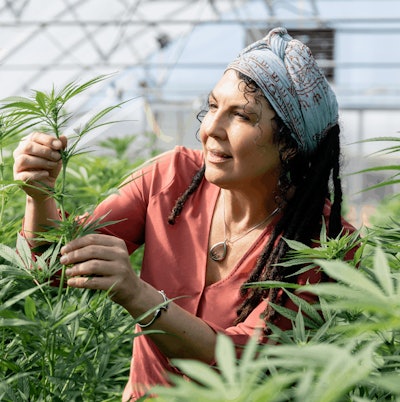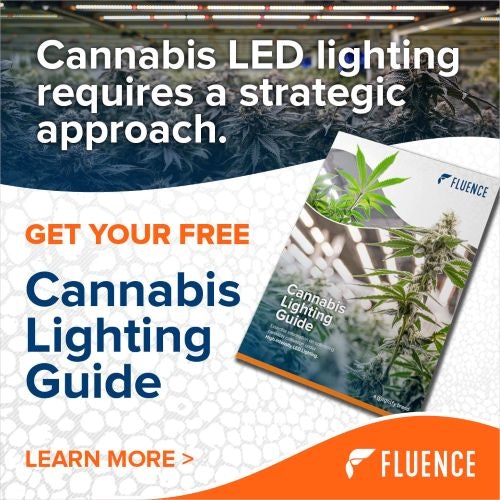

No question exists that the passage of the Agriculture Improvement Act of 2018 (the 2018 Farm Bill) has opened the doors for a burgeoning U.S. hemp industry to emerge after 82 years of prohibition. However, some are wary of the fact that cannabidiol (CBD), one of the non-intoxicating compounds in the cannabis plant, has captured much of the hemp limelight following the new legislation.
One of the reasons for pause is that hemp farmers who grow for grain and fiber, and for a plethora of end uses, fear that the lack of regulations around CBD may draw unnecessary and potentially negative attention to the plant and its newly reclaimed legal status. And put simply, CBD is in an unclear regulatory state while the U.S. Food and Drug Administration (FDA) does its due diligence on determining the safety and efficacy of CBD. Many businesses are, in the meantime, operating in murky regulatory waters.
Hemp Grower spoke with Joy Beckerman to discuss the FDA’s current position on CBD, how CBD is currently regulated (or not) and what the future may hold for this hemp-derived compound that has captured the attention of the masses.
Beckerman is the principal of Hemp Ace International, which provides professional hemp consulting, legal support and expert witness services. Beckerman, whose hemp career spans more than a quarter century, is also the president of the Hemp Industries Association (HIA), executive vice president of the U.S. Hemp Roundtable (an advocacy organization for hemp CBD and hemp food companies) as well as the regulatory officer and industry liaison for global hemp CBD company Elixinol. She also is part owner of Colorado Hemp Works, a hemp grain processing facility, and is a member of Hemp Grower’s Editorial Advisory Board.
Here are some of Beckerman’s insights.
Noelle Skodzinski: Many question whether the “CBD bubble” will burst as manufacturers face increasing regulatory oversight. One hemp expert I spoke with, for example, cautioned hemp CBD cultivators not to “bet the farm” on CBD due to the FDA’s involvement. Can you share insights about what you’re seeing and expect to happen?
Joy Beckerman: Folks that think they can be making dietary supplements and food and not have to follow state and federal laws are grossly mistaken. That’s not a new thing. That’s reality.
There has always been FDA oversight and, frankly, companies have been in denial that there has been. If you are creating dietary supplements* in the United States of America, you are subject to 21 CFR (Code of Federal Regulations) [Part] 111, Current Good Manufacturing Practices for Manufactured Dietary Supplements. And 21 CFR [Part] 101 are labeling requirements for dietary supplements and food. If you are making food and beverage products in the United States of America, you are subject to 21 CFR [Part] 117—the code of regulations for Current Good Manufacturing Practices for Food and Beverage Products.
So, yes, as people come out of denial, they will realize it actually takes a lot to be able to make products lawfully in this country.
And when we say a regulatory framework that the FDA wants to come up with for CBD, it means they basically have to amend or supplement the existing framework (because it already exists).
They now need [additional requirements] for purity and potency. They’re going to have to do it for all the cannabinoids eventually. They’re going to have to decide: This type of purity and potency will be considered a drug, which is a different CFR; [another] purity and potency will be a dietary supplement. How many milligrams is that going to be? And will an isolate be considered a dietary supplement, or are they going to keep that level of purity in a drug? Because Epidiolex is an isolate, and it has already been approved as a drug. And then what is the purity and potency going to be for food and beverage? So those are what we sort of describe as swim lanes: Drugs, dietary supplements [and] food and beverage.
Also, labeling. We may have some additional labeling requirements that will hopefully change with research over time, such as what we’re seeing in the state of California with hysterically-based proposed legislation requiring a “Cannabidiol use while pregnant or breastfeeding may be harmful” warning on the label. And everyone’s endocannabinoid system is different, and so on and so forth.
The laws have been there, and you better step up or you’re going to get sued. And we just saw the first class action suit [Ahumada v. Global Widget LLC] now filed against a CBD company for false potency and disease labeling claims.

So, these folks that are in denial really don’t realize how vulnerable they are to predatory litigation and to FDA violation because it does create public harm when you make claims that you’re not allowed to make for your product.
The FDA has been saying for four years—not six months—on its FAQ page that it is a violation of federal law to market CBD as a dietary supplement or a food.
[*Editor’s Note: For clarification, according to a statement on the FDA’s website, “It is currently illegal … to market CBD as, or in, a dietary supplement. Essentially, the relevant statutory provisions prohibit these uses of CBD because CBD was the subject of substantial clinical investigations into its potential medical uses before it was added to foods (including dietary supplements), and, separately, because CBD is the active ingredient in Epidiolex, an FDA-approved prescription drug product to treat rare, severe forms of epilepsy.”]
Here’s the thing: It’s only a guidance position. But when the FDA speaks to state and city departments of health, state departments of ag, it’s like God has spoken. … Until events that are referred to as a Final Determination or a Final Administrative Action have taken place within the FDA on these issues, which have not taken place in CBD thus far, it’s actually not the law. If it were, we’d all be in for a lot more challenges.
That’s why the hemp CBD industry has been able to prosper. Additionally, the FDA has only issued 41 warning letters to CBD companies since February 2015 [out of] the hundreds of brands out there—not cease and desist letters. And none have resulted in … discipline.
So, it is not really a violation of federal law, but it’s creating an untenable situation. And I always told everybody, once we get the [Drug Enforcement Administration] out from under us, the FDA is going to be sitting there waiting for us.
NS: What do you think the next five years will hold for CBD?
JB: I would say that without legislation directing the FDA to follow an expedited time frame, the FDA could end up taking three to five years to figure it out.
The reality is that it’s a very long-term bureaucratic process within the FDA …, and it takes resources … to come up with a regulatory framework.
They may say, “While we’re figuring out our regulatory framework, you can market CBD as a dietary supplement under these conditions and as a food and beverage.” [But] it’s very possible that if they do it at all, they will do it just for dietary supplements. We don’t want that. We want them to include food and beverage. The difference between food and dietary supplements … is when you have a dietary supplement, it says, “Take this much per day.” But if you put CBD into a potato chip or a brownie or a can of seltzer water, [how do you regulate quantity consumed?] I can eat two cans of Pringles, five seltzer waters, three brownies. And whether it’s a dandelion or a cannabis plant, until they get more data and research over that kind of use, then generally they feel more comfortable sticking with dietary supplements.
NS: If the FDA temporarily allows for dietary supplements, do you anticipate enforcement against food and beverage products?
JB: I still don’t think we’re going to see a lot of enforcement. The FDA is very busy and doesn’t have enough funding, like all regulatory agencies, so it has to make priority choices as to how it’s going to use limited resources to enforce. CBD is just not a big candidate for that when in the drug world, people are dying from fentanyl and all these [other opioids].
We may see it at the state level, which would be unfortunate because [states] have additional resources. State enforcement is a larger issue. Retailers do not want to carry items that will be seized.

















